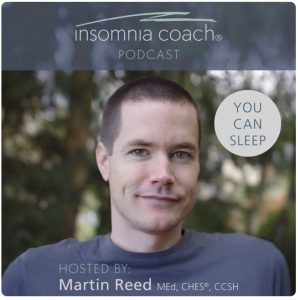3 Articles Related to Eating Disorders, Food Addictions, & Stress Eating
(Though these articles are a recent few years old, they are more relevant now than ever through the pandemic.)
ARTICLE #1
TITLE
Here’s Why You Stress Eat — And How to Stop Doing It
DESCRIPTION
This interesting article details a number of reasons why we stress eat, and these include brain and hormone biology, environmental factors, developmental/cultural issues. “It should come as no surprise that Americans are stressed. A 2017 survey by the American Psychological Association (APA) found that money, work, crime, violence, the political climate and the future of the nation are all significant stressors for Americans, each plaguing more than half of the survey respondents.” [add the covid pandemic to the list] “While stress is bad for the body, the ways people deal with it can be just as unhealthy. The APA found in a different survey that almost 40% of adults reported overeating or consuming junk food in response to stress during the prior month. And of those people, about half said they did so weekly….What is it about food — particularly junk food — that calls to so many of us during stressful times?” The article details a number of reasons why we stress eat and these include brain and hormone biology, environmental factors, developmental/cultural issues.
The last part of the article focuses on ways to both recognize and control stress eating. The article also includes a short interesting video.
SOURCE
Time, July 31, 2018, by Jamie Ducharme
LINK TO RESOURCE
https://time.com/5347612/how-to-stop-stress-eating/?utm_source=email&utm_medium=email&utm_campaign=email-share-article&utm-term=health_dietnutrition
(Tiny URL) https://tinyurl.com/2tnmu22c
=================================
ARTICLE #2
TITLE
Food Addictions Are Real Addictions—And More and More People Are Getting Hooked
DESCRIPTION
What an interesting article that speaks to our impulsive habits of everyday life. The article describes how foods, especially ones that combine “the trifecta” of sugar, salt, and fat, affect the various regions of the brain. The effect is often explained as impulse eating and for some the lack of control that is similar to addiction. “But that doesn’t mean that the life-sustaining substances we come into the world loving and couldn’t survive without—the sugars and salts and fats and proteins, the fruits and vegetables and breads and meats—can’t get us into every bit as much danger as the deadly, often illegal substances that cause so much suffering. You can eat compulsively, just as you can smoke or drink or do drugs compulsively. And in all those cases, compulsions can become full-blown addictions, as repeated exposure plays the pleasure centers in the brain, creating a feedback loop of craving, indulging, consuming, regretting—and doing it all over the next day and the next.” The article discusses how the reward centers of the brain along with dopamine are affected by certain foods, and the resultant compulsion to eat even when it is against our own best biological/medical interests. Students interested in the area of eating disorders, neurophysiology of hunger, and the topic of motivation will find this article to be a useful resource.
SOURCE
Time, November 6, 2019, by Jeffrey Kluger
LINK TO RESOURCE
https://time.com/5718798/food-addiction/?utm_source=email&utm_medium=email&utm_campaign=email-share-article&utm-term=health_addiction
(Tiny URL) https://tinyurl.com/y4tdu53d
=================================
ARTICLE #3
TITLE
Searching for a Better Treatment for Eating Disorders
Cognitive behavioral therapy appears to be the best treatment for many eating disorders
DESCRIPTION
THIS IS A COMPREHENSIVE ARTICLE REGARDING THE TYPES OF EATING DISORDERS, CAUSES, AND THERAPIES! IT IS UP TO DATE WITH THE LATEST DATA AND TREATMENTS.
The article begins with a discussion of the types of eating disorders.
“The three most common eating disorders are anorexia nervosa, bulimia nervosa and binge-eating disorder. Anorexia is characterized by severely restricted eating and/or over-exercising. It also has the highest mortality rate — up to 20 percent if left untreated — of any psychiatric illness. Bulimia shows a pattern of binge eating followed by compensating behaviors, such as vomiting or using laxatives. And binge-eating disorder is defined as recurrent episodes of overeating without compensating behaviors. These three disorders share similar psychological patterns — such as a preoccupation with weight and shape — that lead to a loss of control around eating. Although they have different behaviors and physical symptoms, they are treated in therapy in similar ways.” The article discusses the complexity of understanding the causes of eating disorders through the bio-psycho-social lens. This means that the article looks at the biology of eating, the psychological reasons we eat, and the social/cultural reasons that contribute to eating disorders. The article does a fabulous analysis of the different treatment interventions that include Cognitive Behavioral Therapy (CBT), other “talk therapies”, and social interventions.
Though the article is long it is well-worth reading and keeping as a book marked reference source.
SOURCE
Knowable Magazine, December 16, 2021, by Kendall Powell
LINK TO RESOURCE
https://knowablemagazine.org/article/mind/2021/searching-better-treatment-eating-disorders
(Tiny URL) https://tinyurl.com/4j3s5s4p
==================================
CLASS DISCUSSION QUESTIONS:
•What is an eating disorder? Under what circumstances would it be compared to an addiction?
•What are the three major classifications of eating disorders?
•What brain mechanisms are believed to be involved in eating certain foods made up of combinations of salt-sugar-fat (such as a doughnut or other similar snacks) ?
•What are the causes of “stress eating” ? What actually explains why junk food is so satisfying when we are under stress?
•If you were giving a lecture about the treatment for eating disorders, what therapies would you discuss and why?







